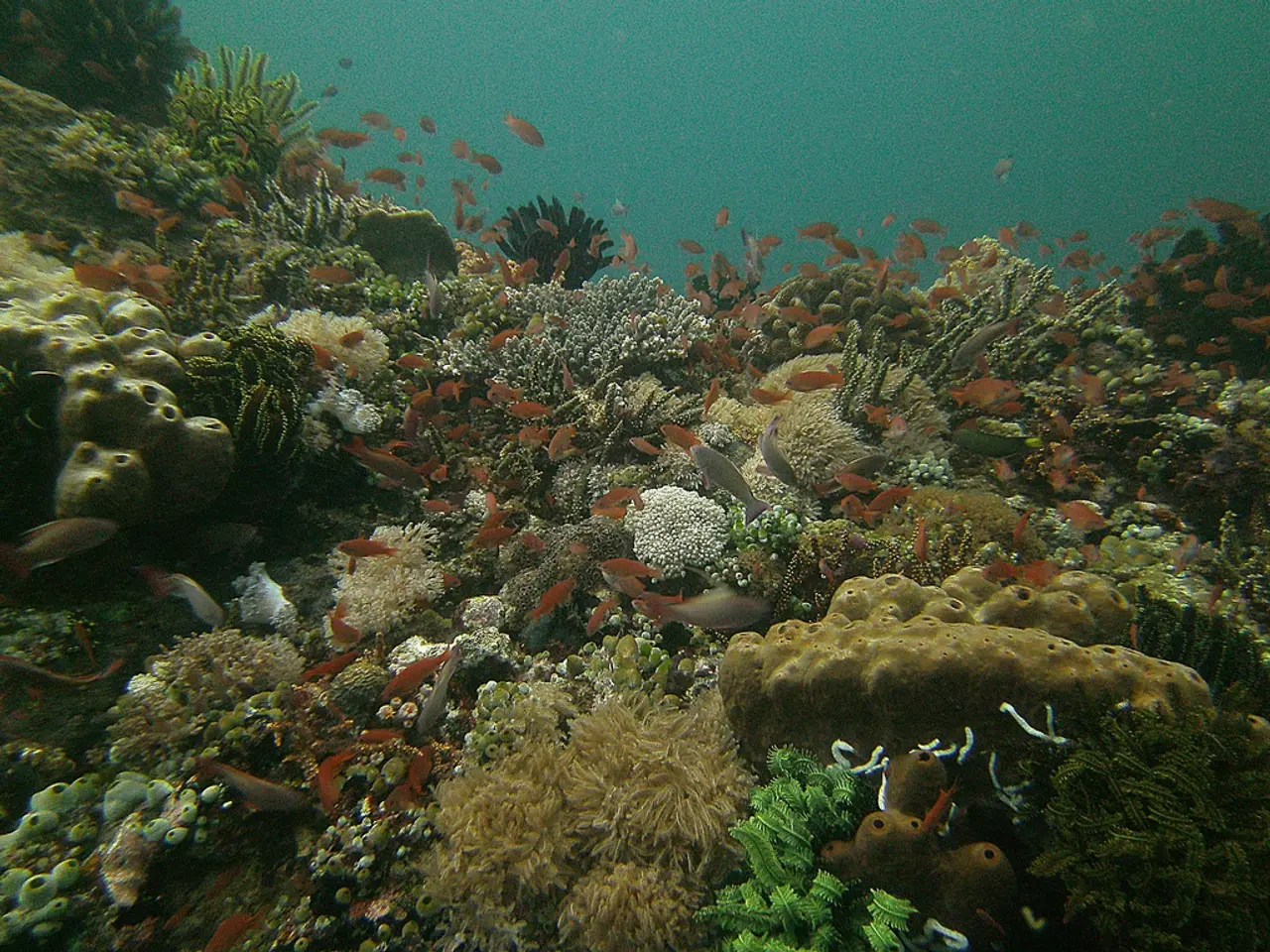Boosting School Tours: Enhancing the Educational Experience for Students
The Science Learning Hub and the New Zealand Marine Studies Centre have joined forces to offer an array of resources and planners for engaging marine-themed field trips. These resources are designed to support educators in creating captivating marine science experiences for students.
The Science Learning Hub provides a wealth of educational materials, such as digital lesson plans, hands-on activities, and curriculum-aligned resources. These resources focus on New Zealand’s unique marine environment and often integrate the country’s curriculum standards, fostering inquiry-based learning around topics like marine ecosystems, biodiversity, and ocean conservation.
Meanwhile, the New Zealand Marine Studies Centre offers structured marine education programmes and on-site field trip experiences. These experiences feature guided explorations of marine habitats, tide pools, and coastal ecosystems. The Centre provides expert support for schools, offering activities, curriculum links, and resource packs tailored to different year levels and learning objectives.
Together, these resources are invaluable for:
- Planning hands-on, inquiry-based marine science field trips aligned with New Zealand curriculum standards.
- Accessing educational content, activity guides, and digital lesson plans focused on marine biology and conservation.
- Supporting educators with expert advice and practical tools for delivering effective marine learning outside the classroom.
The Science Learning Hub is mindful of the current interests and learning topics of schools, ensuring that its resources remain relevant and up-to-date. For instance, the Hub's "Life in the Sea" resource is particularly useful for understanding zonation patterns, abiotic factors of estuaries, and biotic factors in the sea.
Heather Robertson, an educator at the New Zealand Marine Studies Centre, sends out previsit material to schools, which includes background information and links to other resources for research, often from the Science Learning Hub. This previsit material helps teachers plan their marine field trips more effectively, ensuring a seamless integration of the Science Learning Hub’s resources with the Centre’s programmes.
Sally Carson, another educator at the Centre, puts together pathways for teachers to access the Science Learning Hub according to the themes linked with the Centre’s programmes. This makes it easier for teachers to find relevant resources and plan their field trips accordingly.
Stephen Cutler, a teacher, recommends the Hub to students for visual information about marine topics before or after a field trip. Christine Anderson, another teacher, uses the Science Learning Hub’s "HO to Go" topic for a water cycle-themed lesson and also shows a video on the acidification of the ocean.
Derrith Bartley, a teacher, used the Hub to provide a crash course on life in the sea before a field trip to the aquarium. The New Zealand Marine Studies Centre offers programmes that are hands-on, allowing students to work with live animals and use scientific equipment.
While the exact URLs for these planners are not directly linked from the Science Learning Hub and New Zealand Marine Studies Centre, resources similar to these can be found at institutions like the Ocean Institute and other marine education centres. For more detailed New Zealand-specific marine topic planners, educators should consult the Science Learning Hub website and the New Zealand Marine Studies Centre’s official educational offerings, which offer curriculum-based marine education resources, teacher support materials, and field trip planning guides explicitly designed for the local marine context.
[1]: Ocean Institute [2]: Other marine education centres
- The Science Learning Hub and the New Zealand Marine Studies Centre not only offer resources for marine-themed field trips, but also provide online resources for learning, such as digital lesson plans focused on marine biology and conservation.
- For educators seeking to extend learning beyond the marine field trips, the Science Learning Hub offers online resources that can be accessed for visual information about marine topics.




